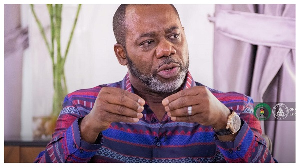Accra, Nov. 18, GNA - Dr Anthony Akoto Osei, Deputy Minister of Finance and Economic Planning on Tuesday said Ghana might not be able to meet all the targets of the Millennium Development Goals (MDGs).
"Achieving them is quite difficult, but Ghana is gradually working towards its realization and if we work hard, we will surely meet some of them but whether we will meet all of them by 2015 is very doubtful," the Minister was explaining a point to the Ghana News Agency in an interview after opening this year's Statistics Day.
The MDGs adopted in 2000 synthesis eight major goals and targets on poverty and hunger, education, gender, child mortality, maternal health, HIV/AIDS and other diseases, environment and global partnership for countries to achieve by 2015.
The attainment of these goals depends largely on individual country's governmental actions.
Speaking at this year's Africa Statistical Day Celebration under the theme: "Monitoring Progress Towards the MDGs": A challenge for Statisticians", Dr Osei said strengthening the capacity to implement the poverty reduction strategies was crucial for the realization of the goals.
He said in creating wealth, there was the need to ensure stable macro economic indicators, such as stable price of consumer goods, favourable balance of payment and lower interest rates.
"To achieve these, statistical information is crucial for the efficient and effective planning of the country's development agenda," Dr Osei said.
He said Ghana was expected to provide annual report towards the achievement and progress of the MDGs, adding that the capacity of the Ghana Statistical Service would be improved to enable it to constantly provide reliable and efficient data towards the realisation of the MDGs.
Dr Kweku Twum-Baah, Acting Government Statistician, said in working towards the realization of the goals, individual countries must look at the various economic indicators under the goals to see which would be relevant to their country's situation.
"After that individuals nations can decide to find out what kind of instrument or measures needed to be put in place as well as the kind of data, if not available, how can it be made available to serve as a base for the monitoring and evaluation," he said.
Dr Twum-Baah said the provision of reliable data would depend largely on the initiative and effective collaboration with the Statistical Service by the respective agencies and institutions working on the ground in implementing the programmes.
He said quality data needed for good governance was dependent on an improved national statistical system.
Touching on the celebration, he said, the occasion would be used to identify indicators to measure and monitor on a sustained basis, the Abuja Declaration on Roll Back Malaria, HIV/AIDS, Tuberculosis and other related infectious diseases as well as the Pan African Forum on Children/ World fit for Children.
Business News of Tuesday, 18 November 2003
Source: GNA
















